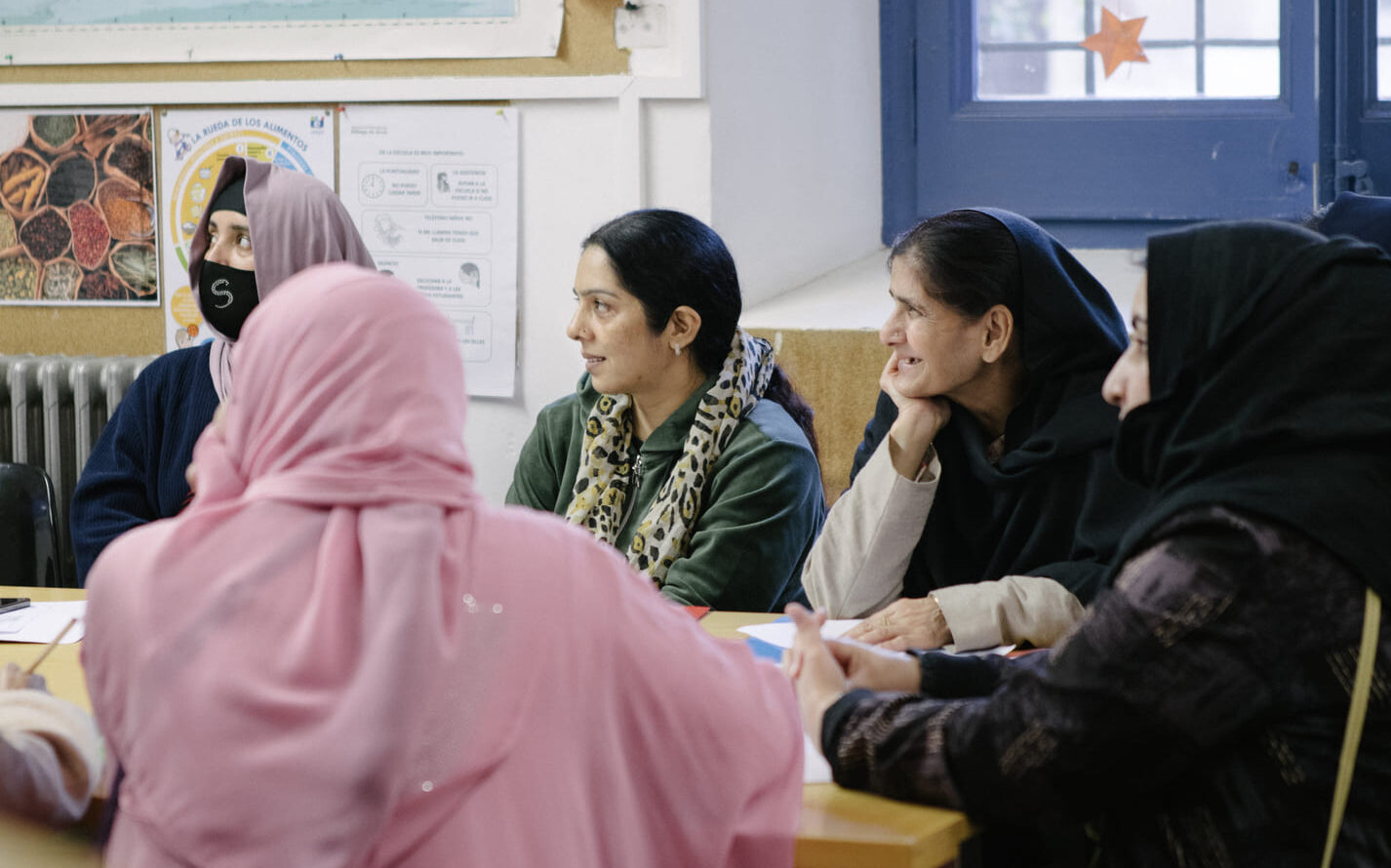 Photo by Claudia Ferri, Diàlegs De Dona, 2024
Photo by Claudia Ferri, Diàlegs De Dona, 2024
Promoting the integration and intercultural dialogue of immigrant women with the local community in Barcelona
The Associació Intercultural Diàlegs de Dona was founded in 2013 by Fatima Ahmed and Mercè Amor, who both already had decades of professional experience with women and immigration rights behind them. The association aims to address the increasing number of women immigrating from non-EU countries to the city of Barcelona, particularly the Raval district. The main goal of the project is to actively promote the integration and socialisation of immigrant women living in the Raval district, to fight the feminization of poverty, and to ensure the protection of women’s fundamental right to an education.
Communication is fundamental in order to break barriers. It is possible to ameliorate the isolation of these immigrant women by giving them the tools to communicate. Diàlegs de Dona works to bring female neighbours in the community together by encouraging respect for the differences between themselves and those they meet in their host country. This includes learning the language of their host country, as well as getting to know the new society and understanding how it works. Since its inception in 2013, Diàlegs de Dona has worked in the care of migrant women from non-EU countries that do not use the Latin alphabet. They are mainly from Asian countries and the Arab world. The majority of these women have arrived through family reunification, and a small percentage are asylum seekers. They usually live in precarious situations and are at risk of social exclusion. The project aims to bring an end to this isolation by making the women aware of how the new society functions and of their rights as residents, helping them discover their potential and fostering self-confidence in order to promote their personal independence.
The association has gained the trust of traditional and hard-to-access immigrant groups, mainly of Muslim background. This trust has allowed the association to receive a large number of women from Pakistan, Bangladesh, India, Morocco, and Syria. The welcome program has increased from year to year: during the 2013-2014 academic year, the association had 124 students, in 2014-2015, 154 students, in 2015-2016, 212 students, in 2016-17 220 students, the maximum capacity at that time. From the academic year 2017-2018 to the end of 2020, the number of participating women had exceeded 250 women. The increase from 220 to 250 was possible due to the Nando and Elsa Peretti Foundation – Delegació a Catalunya, who have supported the association since 2015, allowing it to increase the number of places available to 30 women with children less than 3 years of age. Due to long waitlists after the pandemic, the city council of Barcelona allowed the association to occupy additional empty space in the building where it is located, and as a result, the number of beneficiaries has increased considerably, to over 400 women.
In 2023 the NaEPF renewed its support to Diàlegs de Dona activities that fight against racism, islamophobia, and ghettoisation. The practice of Diàlegs de Dona aims to be a small example of a different way of doing things. It facilitates, from the ground up, the creation of bridges through dialogue. It particularly focuses on fostering communication between neighbours, in order to end the isolation of immigrant women and create bonds of solidarity with local women. The reception and socialisation of immigrant women is, in the medium and long term, a commitment to the future. They are mostly young women, many of whom will give birth to and raise their children in the new society they have decided to make their home. Other objectives of this project are to raise awareness and promote a model of responsible and sustainable consumption, as well as support communication between residents who share a common territory but have different cultures, customs, and beliefs. These are activities that allow migrant women and local residents to come together and facilitate the transition from a “tolerance towards new residents” attitude, to one of a “full acceptance of migrants as equals.”
“I think we need to fix inequalities, because a world that tolerates inequalities based on gender, skin colour, sexual orientation, religion, social status,
Elsa Peretti Gazzetta di Parma, 2020
is a world that will always be in conflict.”






